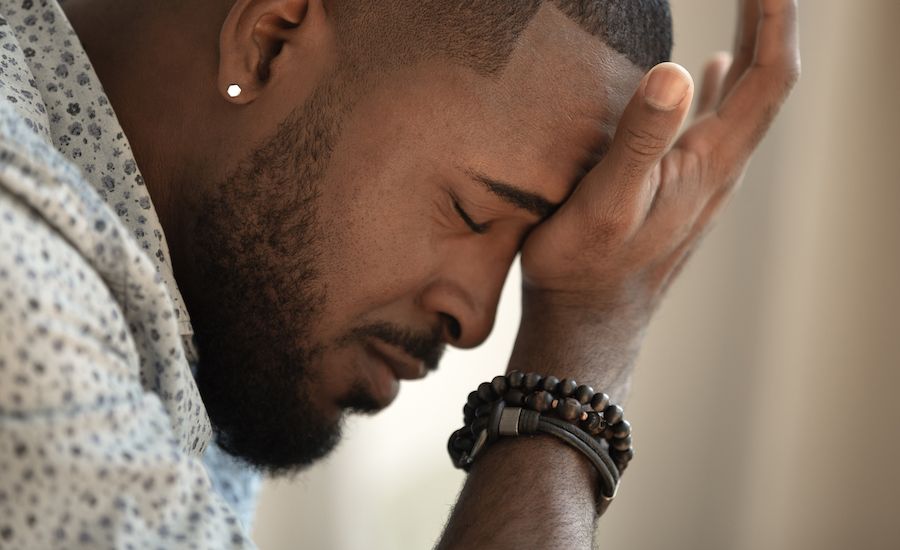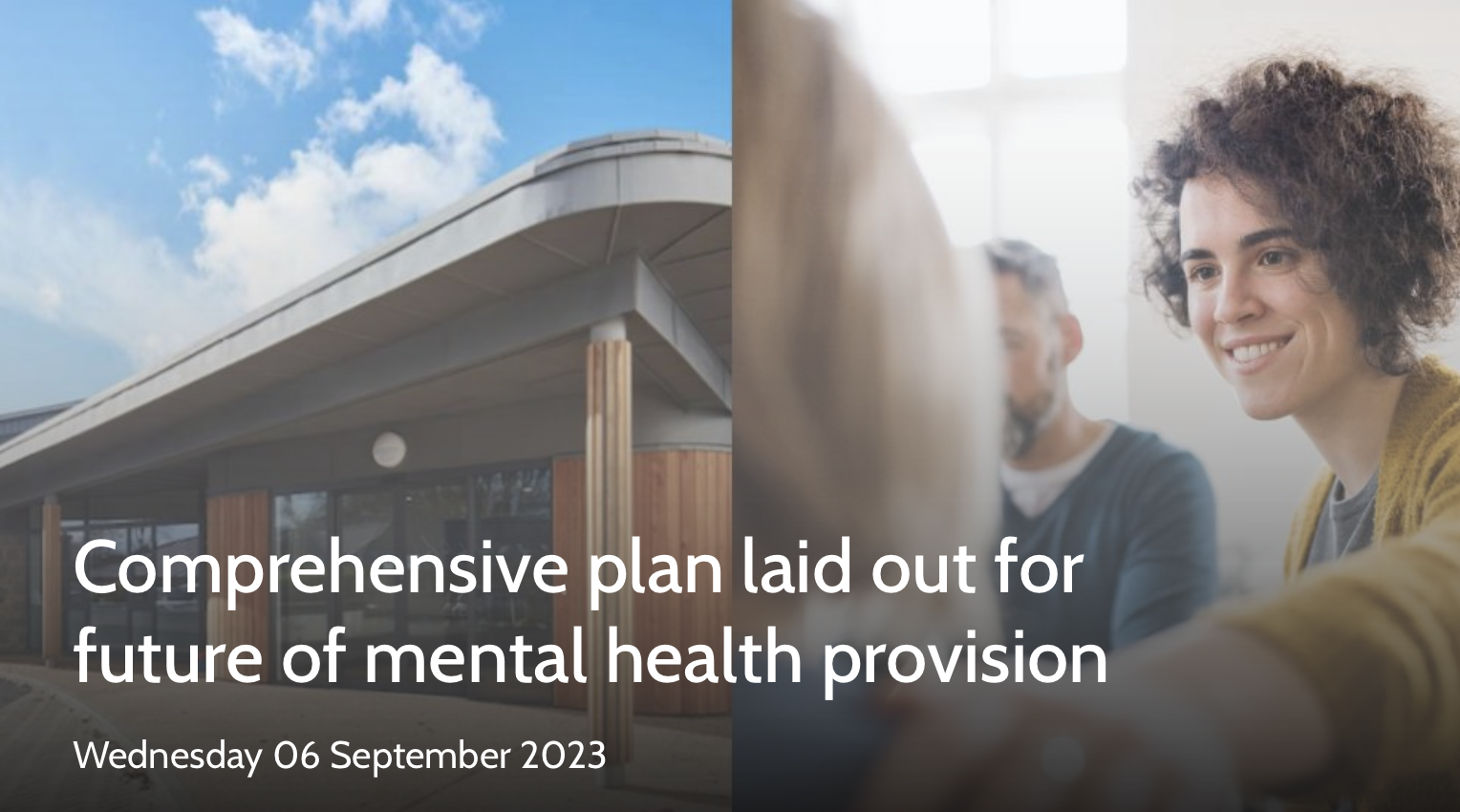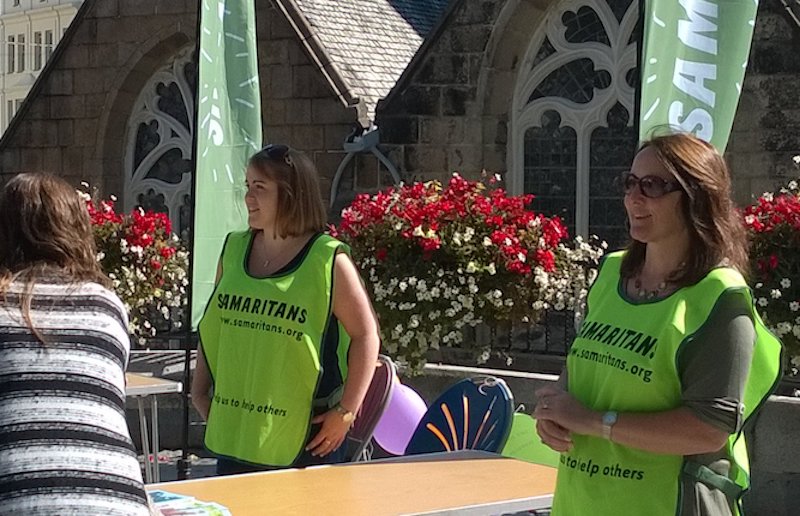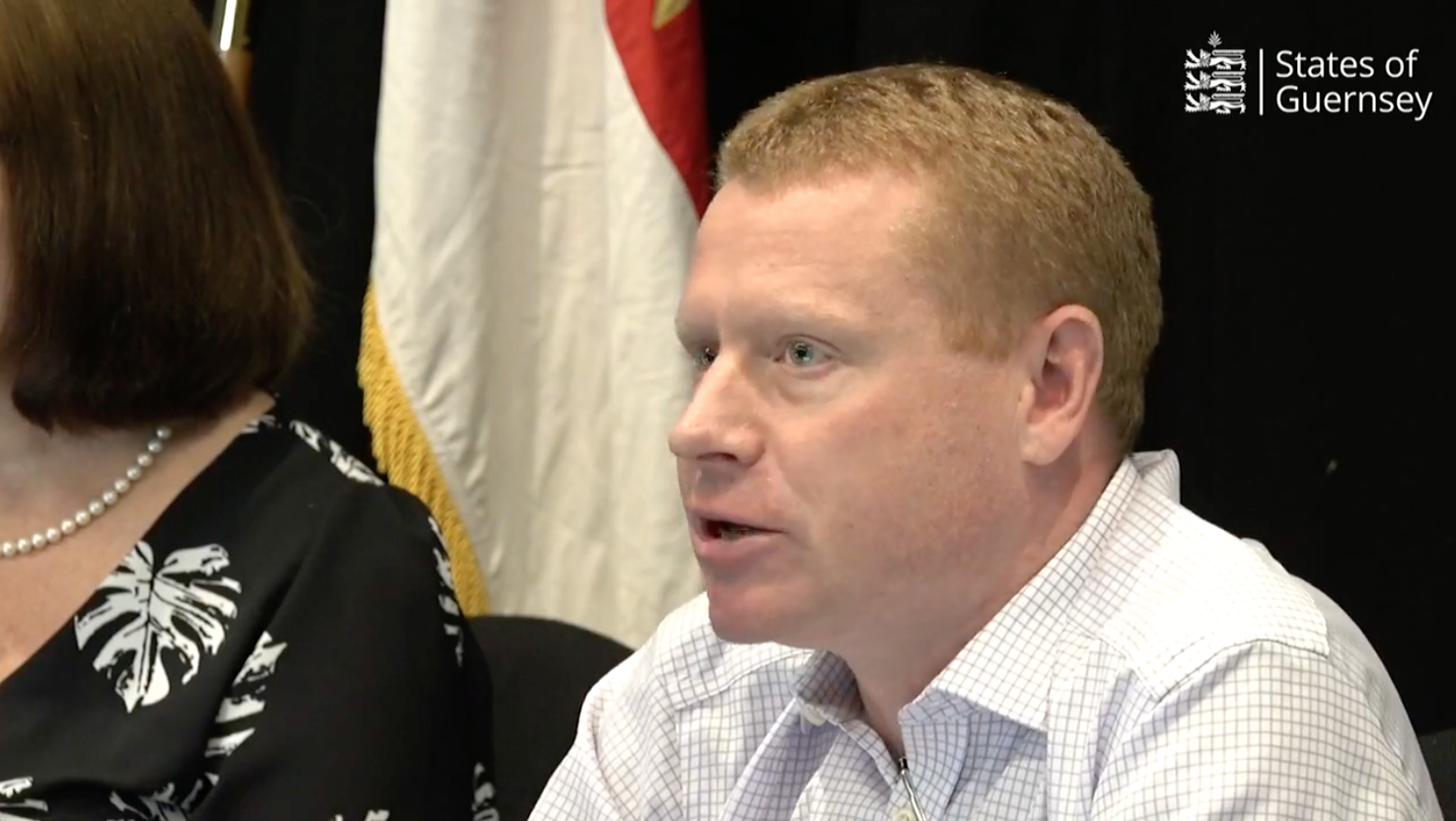


The people behind the Bailiwick's new mental health strategy have reiterated the long held advice that anyone experiencing low moods or poor mental health should speak out either to someone they know, a charity, or a professional.
The new Mental Health and Wellbeing Strategy was published earlier this week, ahead of World Suicide Prevention Day which is today.
Dr Dominic Bishop, the Clinical Lead for Mental Health and Adult Disability across the Bailiwick said there is evidence that shows the majority of people who go on to take their own lives have not previously been connected with mental health services, nor have they reached for help or support.
Dr Bishop hopes to encourage people to reach out saying not only can it prevent suicidal thoughts escalating, but it can improve outcomes for people whatever mental health difficulties they're facing.
"...suicide is a permanent solution towards generally temporary," he said.
"I don't think I've ever seen a simple case where you can think this one thing happened and then that person did that. It's always complicated, it's always a multitude of things and that's why the person feels so overwhelmed. If that's internalised and it goes around and around...if you keep it to yourself, it gets bigger and bigger and bigger..."

Dr Bishop said talking to someone else can stop that internal pressure from building.
"...even if you're just sitting with someone and talking to them, if they don't have the answer, it's like a release and hearing yourself talk through things, you can start to make sense of things. You can start to contextualise them. You can start to decide actually how overwhelming and how strong they are to help guide yourself through them.
"The other person, if they can be helpful as well then that's great or they can support you. (But) I think the difficulty is people just don't want to reach out.
"There is more of an awareness, and there is more of an acceptance on one level, but there is a group of people and it's men predominantly that don't acknowledge when things aren't ok."
With men known to be more at risk of taking their own lives than women, Dr Bishop said they need to be given even more encouragement to speak out.
"It's so multifaceted, so complicated, it's so individualised in every case, that actually we have to change our culture, to change our ability to be able to talk to each other about these things.
"There's a lot of talk about the stigma of suicide. People say 'we really want to destigmatise suicide', but we don't. We want to really stigmatise suicide because it's a terrible, devastating thing.
"We want to destigmatise being able to talk about it."
Jo Cottell from Guernsey Mind agreed that speaking to someone about your personal problems is the key to addressing them. She said sometimes it takes that other person to start the conversation if they notice a friend, colleague or loved one is not themselves.
"I think people are very anxious that if somebody is expressing dark thoughts, intrusive thoughts, that if I actually talk to them about this, I'm going to make it worse or I'm going to put ideas in people's minds. So people perhaps shy away from actually discussing what's going on."

Pictured: If anyone is struggling to talk to someone they know, then the Samaritans offer a free listening service.
"But often if somebody's having suicidal thoughts, the only person they're really talking to is themselves and that's just amplifying their thoughts.
"They're not looking at different perspectives, they're perhaps not seeing opportunities for hope that somebody on the outside may see, or that fact that there's even somebody there that can actually help."
Guernsey Mind and other organisations offer training to improve wellbeing and mental health in the community, including mental health first aid training.
"We do lots of training around suicide as part of our mental health first aid training. We we also touch on it in my Samaritans training. We try and encourage people to actually listen for triggers in conversations, so they're not too scared to say, 'what did you mean by that?' or 'tell me a bit more here'."
If anyone is unsure who they can talk to, or they're reluctant to talk to someone they know then charities like the Samaritans offer listening services.
Ms Cottell explained that you are highly unlikely to ever reach someone you know so you can speak honestly and entirely anonymously.
"...all calls go into a national pot...you could end up talking to someone in Bournemouth or any of the other 200 branches. You can email as well so there're different ways of getting in touch. It's as anonymous as you want."

Pictured: Dr Dominic Bishop is the Clinical Director for Mental Health and Adult Disability for the Bailiwick.
Dr Bishop agreed that anonymity can help people reach out for help when they need it.
"You often find that it's the initial contact that really causes people significant anxiety. We work in a really small island. We live in a small island. It's very difficult to be anonymous.
"But men have had cancer screening, prostate screening, women go through cervical screening examinations, you might run in to your GP in Waitrose.
"We do maintain confidentiality, and we're particularly aware that that's even more important in a small place."
Comments
Comments on this story express the views of the commentator only, not Bailiwick Publishing. We are unable to guarantee the accuracy of any of those comments.